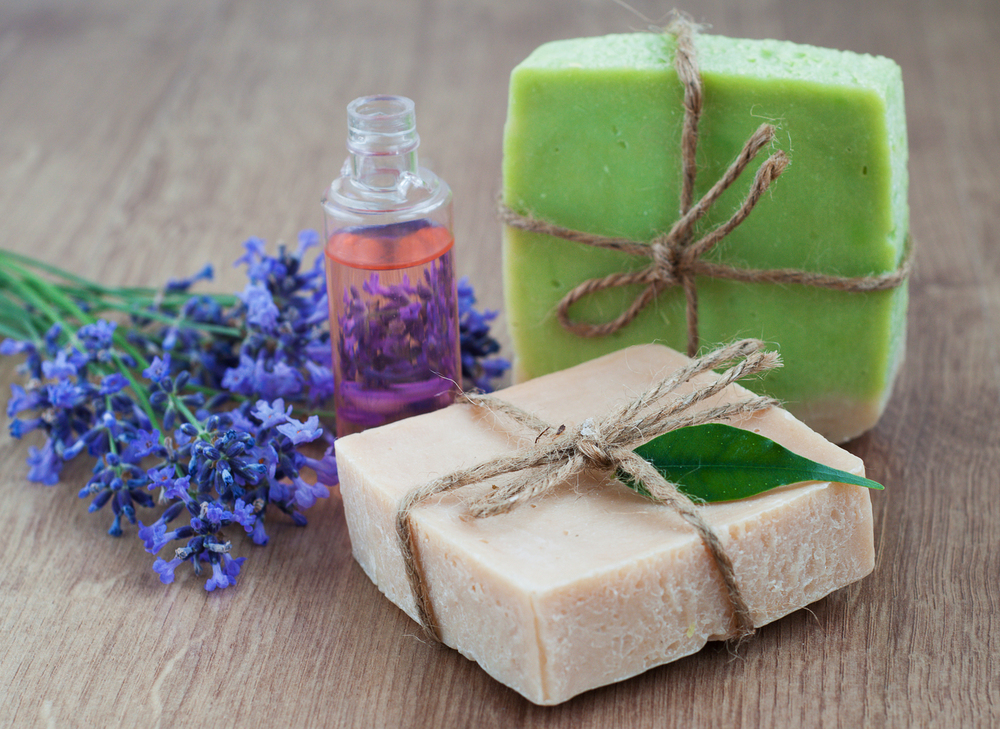
Soaps That May Trigger Eczema
Eczema is an inflammatory skin condition and a type of atopic dermatitis that causes skin to become itchy, rough, and inflamed. Eczema is not contagious, and many patients develop symptoms in early childhood and eventually outgrow the condition. Others, however, may need to manage the condition throughout their adult years. Triggers for eczema differ between patients but often include foods (i.e., dairy and nuts), environmental factors (i.e., weather and pollen), and certain soaps and fragrances.
This article will introduce you to the most common soap ingredients that tend to trigger eczema flare ups:
1. Soaps with strong aromas
Strong fragrances of any sort may not be a good idea if you have eczema. If soaps with light fragrances such as botanical oils can cause irritation, imagine the effects of strong fragrance soaps. Your skin might smell good, but it definitely will not feel good. The National Eczema Association (NEA) reported that 8% to 15% of individuals suffering from eczema have sensitivities to a fragrance. This makes these kinds of soaps a number one trigger.
2. Soaps containing cocamidopropyl betaine
Cocamidopropyl betaine is derived from coconut oil and is present in many soaps, shampoos, and cleansers. It is very effective in cleansing and getting rid of dirt and oil. Despite this, it might
not be so great for sensitive skin, as many users report flaking and redness around the mouth, eyes, hands, and scalp. So exercise caution and remember to take note of the ingredients.
3. Soaps with botanical oils
Fragrances generally are a terrible idea for eczema sufferers. While botanical oils have a more light or “natural” fragrance, they can also pose an issue. Using soaps with botanical oils can lead to sensitive skin. For individuals with eczema, your skin is already sensitive and prone to flare-ups. These soaps may only make your condition worse and, therefore, ought to be avoided.
4. Soaps with methylchloroisothiazolinone (MCI) and methylisothiazolinone (MI)
MCI and MI are ingredients found in many beauty items that we use, such as makeup and baby products. They help safeguard or protect these items from bacterial and fungal growth, threatening to break down the product itself. While they may be beneficial so that we have our products for longer, they aren’t quite gentle on skin. These ingredients can cause flaky, red, itchy skin in the places you applied the product and is one more trigger you do not need around.
5. Propylene glycol based soaps
One respected American Society named propylene glycol the “Allergen of the Year” in 2018 and for just cause. It too is found in many cosmetic and skincare products as well as certain medications and food. It might sound odd, but it can also be found in some eczema soaps and medications. This ingredient can cause allergy flare-ups for many eczema patients. Check the ingredients found in your soaps. If you’ve been using a soap that you realize isn’t helping your skin when it should be, propylene glycol could be the cause.
6. Antibacterial soaps
Antibacterial soaps are well known for their ability to rid our skin of germs and other microscopic organisms that mean to do us harm. For individuals with eczema, however, they may not be your best friend. These soaps deprive your skin of considerable amounts of moisture. With a lack of moisture, eczema flare-ups are often triggered, leading to itching, rashes, and a myriad of symptoms. It just isn’t worth it.
Treatment, whether child eczema treatment or teen eczema treatment, is important, especially in light of the ingredients found in many soaps and other products that can put them at risk. It is critical to stop using a product once it affects your child’s skin and always inform your doctor and look into other medications and home remedies that can offer better relief.




